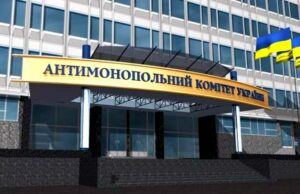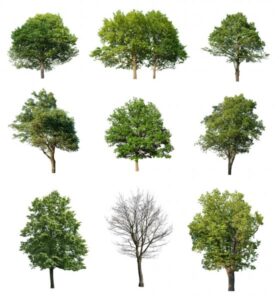
The Kyivstar mobile operator at the end of December 2021 expanded its radio network coverage in seven regions of Ukraine by switching on 4G/LTE technology at another 26 base stations.
According to the press service of the company, as a result, residents of 49 settlements with a total population of 25,000 people will be able to use high-speed mobile Internet. These are the settlements of Lopatyntsi, Petrani, Malyshevka (Vinnytsia region), Budysche, Liubystok, Shampaniya (Cherkasy region), Krasny Kut, Toretske, Novoandriyivka (Donetsk), Yabluneve, Tuzhyliv, Dubove (Kyiv region), Zatyshne, Yakovlivka, Rzhavets (Kharkiv region).
Today the 4G Kyivstar network operates on the territory of 16,000 settlements of Ukraine.
“The company ends 2021 with high rates of 4G coverage in Ukraine. Already more than 90% of our compatriots can use access to new mobile technologies and get more benefits from high-quality communications,” director for regulatory support at Kyivstar Oleksandr Kohut said.
The telecoms operator plans to continue building new mobile networks and will focus on covering highways with 4G communications. In 2021, the company accelerated the construction of base stations along the key highways Kyiv-Kharkiv, Kyiv-Odesa, Kyiv-Lviv, Reshetylivka-Dnipro. To complete this project, the company invested in the construction of 33 new base stations and in the re-equipment of another 50 base stations. To date, the project for covering key roads with 4G communications is almost 90% completed.
“The digitalization of Ukraine requires the attraction of huge investments. It is for this purpose that a memorandum was signed between the government of Ukraine and mobile operators at the investment forum in the city of Mariupol in 2019, which provides for the establishment of transparent and predictable regulation and limitation of fiscal burden on mobile operators. In particular, a moratorium in increasing the key industry tax – rent for the use of radio frequency resources. We hope that in 2022 the relevant bill will be introduced by the government and supported by the parliament,” he added.
Kyivstar notes that from 2018 to today, the operator has invested more than UAH 20 billion in Ukraine – in the construction of LTE networks, the purchase of licenses, and the improvement of the quality of communication. Thanks to this, the number of subscribers using high-speed mobile Internet in 2021 increased by 32% – up to 12 million.

The Antimonopoly Committee of Ukraine (AMCU) on Wednesday imposed a UAH 80.11 million fine on JSC Dniproazot, a monopolist in the liquid chlorine market, due to the suspension of its production and sale.
“The stopping of production of liquid chlorine by the enterprise during the period from June 18, 2018 to July 19, 2018 and the termination of its sale from July 1, 2018 to July 19, 2018 are recognized as abuse of a monopoly (dominant) position in the market for the primary sale of liquid chlorine,” the committee’s press release says.
According to it, the company argued that production was stopped due to a significant increase in a gas price and the lack of working capital, but the AMCU, following an investigation, claims that there were no significant changes in the weighted average prices for the purchase of natural gas by the company.
In addition, it was established that at the time of the stoppage of production, Dniproazot had circulating and credit funds available for current settlements with counterparties and conducting business activities.
The Committee believes that among the motives for stopping production was the company’s desire to resume legal relations with JSC Ukrnafta to obtain cheaper raw materials and the company’s intention to raise prices for liquid chlorine.
Following the case consideration, it was established that during 2017-2019, Dniproazot was the only enterprise that produced liquid chlorine in Ukraine, with market shares of 99%, 78% and 68%, respectively, the report says.
The AMCU also noted that since the maximum reserves of liquid chlorine at water utilities could not exceed 15-30% of the daily requirement, some of them found themselves in a crisis situation, since they had limited chlorine residues.
“During the period of Dniproazot’s downtime, meetings were held with the participation of government representatives, during which some water utilities warned about the threat of stopping the disinfection of drinking water… The technological process for purifying drinking water is continuous, so a delay in the reagent delivery could turn into an epidemiological catastrophe on a national scale,” the AMCU said.
The AMCU clarified that in July 2018, the price of goods sold by Dniproazot in tanks increased by 277%, in cylinders – by 133%.
The Committee noted that the issue of setting prices by the enterprise during 2017-2019 is being investigated in another antitrust case.
Dniproazot specializes in production of carbamide, ammonia, sodium hydroxide, liquid chlorine and hydrochloric acid and is controlled by the structures of Privat Group.

The Cabinet of Ministers approved the list of goods for 2022, the export of which requires licensing, as well as the list of ozone-depleting substances, goods and equipment from them, the export of which also requires licensing.
The government made the corresponding decision on Wednesday.
According to the draft resolution, the government established zero quotas for silver and gold, the quota for precious metal scrap was 2 tonnes.
As for the list of goods and equipment, which include ozone-depleting and fluorinated greenhouse gases, a number of drugs, dyes, paints and varnishes, cosmetics, lubricants, mixtures, etc. have been introduced.

The number of adult Ukrainians vaccinated against COVID-19 will soon exceed 50%, Prime Minister Denys Shmyhal has said.
“In the near future, 50% of adult Ukrainians will receive vaccinations. There are enough vaccines for everyone to be vaccinated. Since the beginning of the year, 40 million doses of vaccines have been delivered to Ukraine,” he said, opening a government meeting on Wednesday.
The Cabinet of Ministers has spent more than UAH 35 billion to finance the fight against COVID-19, Shmyhal said.
He added that in 2022 Ukraine would also be provided with a sufficient amount of vaccines against COVID-19.

The State Forest Resources Agency of Ukraine has planted 240 million trees in 2021, it is planned to increase this figure by a quarter, to 300 million in 2022, according to a press release from the department on Tuesday.
“This year, enterprises subordinate to the State Forest Resources Agency have planted 240 million seedlings and saplings. In addition, additional 9 million woody plants have been planted on the lands of other forest users,” head of the agency Yuriy Bolokhovets said.
The State Forest Resources Agency clarified that 59.5 million out of 240 million trees have been planted as part of the presidential program Green Country, which provides for planting 1 billion trees in three years, its implementation began in the summer of 2021.
It is clarified that 51 million trees have been planted in Zhytomyr region, Rivne region – 29.5 million, Volyn region – 23.3 million, and Chernihiv region – 15.6 million.
In the forest-steppe regions, 66.5 million trees have been planted, including in Kyiv region – almost 20 million, Poltava and Sumy regions – almost 10 million each, Cherkasy region – 8.2 million, Kharkiv region – 6.2 million, Vinnytsia region – 5.2 million, Ternopil region – 4.4 million, and Khmelnytsky region – 3.7 million.
In addition, in the steppe regions of the country, foresters have planted 21.3 million trees, including in Luhansk region – 6.6 million, Zaporizhia region – 4.4 million, Kirovohrad region – 3.8 million, and Kherson region – 2.7 million.
According to the State Forest Resources Agency, 30.3 million trees have been planted in the Carpathians in 2021, including 15.1 million in Zakarpattia region, in Lviv region – 8.1 million, and in Chernivtsi and Ivano-Frankivsk regions – 3.5 million each.